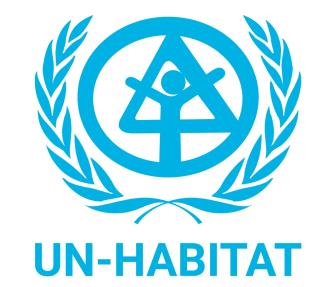The concept of “home” defines people’s identity and daily experiences—but an estimated 318 million people in the world are homeless. Added to that, 170 million are displaced, and by 2030, the number of people lacking adequate housing is anticipated to rise to three billion.
Want to dig deeper into today's talks? Read the full Earth Negotiations Bulletin daily report.
On Thursday, WUF12 discussions considered the factors influencing this situation, including rising land costs, wars and conflicts, and the impacts of climate change. Panelists and participants focused especially on the human costs involved, and how people can be at the center of any changes for the better.
In the morning dialogue on “Putting People First in a Digital Era,” government leaders from developing countries spoke about ensuring digital literacy, and shared experiences about how digitalization has allowed for faster work and more granular data collection. In parallel, a dialogue on “The Loss of Home” highlighted challenges for migrants, displaced persons, and refugees, even those who have lived comfortably in their countries of settlement. Participants pondered the concept of “domicide” as the destruction of ordinary people’s homes, shops, and communities, not only in times of war, but also through mass evictions. Mazen Ismail, a Lebanese-Palestinian poet, brought his own refugee experience to WUF12 with his poem, “Who Truly Escapes A War,” reflecting on the long-term impacts of war and violence on individuals.
In the afternoon, Special Sessions took place that looked to the wisdom of ancient civilizations as the basis for developing cities today and the ongoing work of making cities accessible to persons with disabilities. A dance performance and an interactive game of randomly assigning different abilities to players helped participants imagine the experiences of those who face barriers in navigating their way around public spaces.
UN-Habitat convened high-level conversations, first on housing and infrastructure finance in the context of current efforts to reform financing for development in the lead-up to the Fourth International Conference on Financing for Development (FfD) in 2025. At lunchtime, data specialists and housing advocates met to consider possibilities for collaboration on a data platform to inform urban development and housing provision. Participants expressed enthusiasm for collaboration. Key insights from the discussion included acknowledgement that data is not neutral but always political in nature and that, while data is used to inform interventions, interventions are also a way to gather data.
Rounding off the day, Anacláudia Rossbach, Executive Director, UN-Habitat, moderated a “fireside chat” for identifying housing solutions. Panelists noted how changing demographics influence the types of housing that are most needed, stating that the nuclear family concept is no longer the reality in many contexts. As participants pondered the scale of the housing challenge, Rossbach encouraged all to consider what is already working on the ground—something that WUF, as a platform, offers many opportunities to do.

